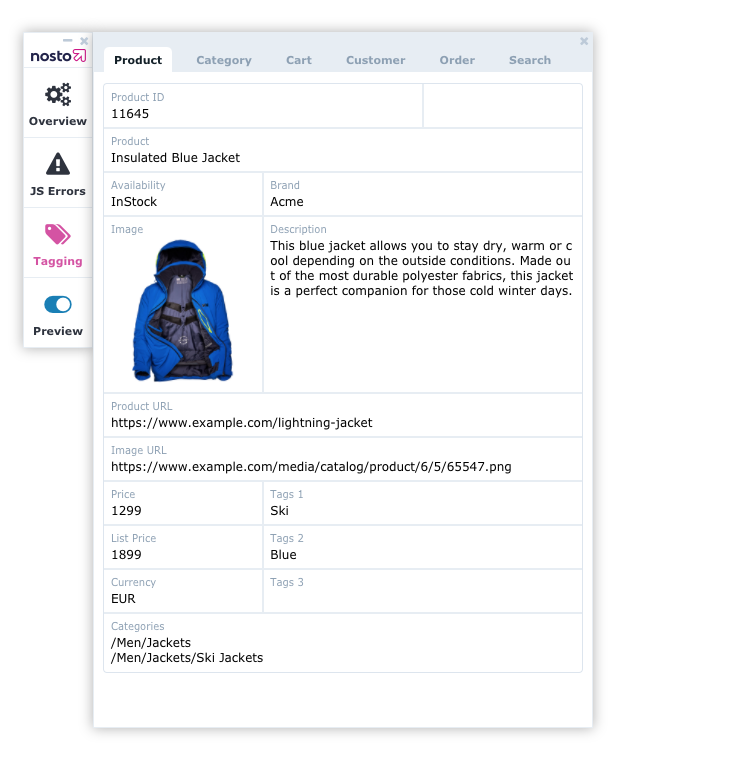Default Product Tagging
nostojs(api => {
api.setTaggingProvider("pageType", "product")
api.setTaggingProvider("products", [
{
product_id: "Canoe123",
name: "Acme Canoe",
url: "https://example.com/canoe123",
image_url: "https://image.example.com/canoe1.jpg",
availability: "InStock",
price: 999.5,
price_currency_code: "USD"
}
])
})<div class="nosto_page_type" style="display:none" translate="no">product</div>
<div class="nosto_product" style="display:none" translate="no">
<span class="product_id">Canoe123</span>
<span class="name">Acme Canoe</span>
<span class="url">https://example.com/canoe123</span>
<span class="image_url">https://image.example.com/canoe1.jpg</span>
<span class="availability">InStock</span>
<span class="price">999.50</span>
<span class="price_currency_code">USD</span>
</div>Tagging the prices
Tagging the categories
Tagging the currencies
Tagging the availability
Tagging the Google Categories
Tagging the Rating
Tagging the Tags and/or Custom fields
Tagging the currently viewed sku
Fields that are not exposable in tagging
Adding support for advanced use cases
Supplier Cost / Margin Filter
Troubleshooting


Translate attribute
Last updated
Was this helpful?